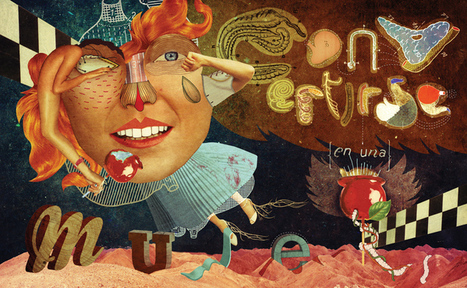"School librarians can use curation as a tool to position themselves as information and communication authorities and information professionals."

|
Scooped by Robin Good |
Joyce Valenza, a teacher librarian and a prolific writer, has published at the end of 2012 a great article explaining the relevance and benefits that content curation can bring to the education world and the importance that school and college librarians may play in this major transformation.
Besides effectively introducing curation, its role and reason to be by utilizing some highly qualified references, the article focuses on the reasons that make librarians uniquely qualified to curate and the benefits that can derive from effectively utilizing curation in their activities.
The benefits and applications of using curation are reviewed as well as the potential for curation to be highly beneficial also beyond the education and learning world.
Joyce Valenza also points for example to search, as a likely area in which curation may play very soon a much more important role than search engines have played this far.
From the original article: "Curation tools present an exciting new genre of search tool. Searchers can now exploit the curated efforts or the bibliographies of experts and others who take the lead in a particular subject area—those who volunteer to scan the real-time environment as scouts.
They also present the opportunity to guide learners in new evaluation strategies. Who is the curator? Which curators can you trust? Is a curator attached to a team, publication, institution, organization? How can the quality of their insights, selections, sources, and feeds be judged? Do their efforts have many followers? Is their curation active and current?
By linking to the search pages of the major curation tools, school librarians can help students, faculty, and parents with more long-tail needs access the expertise of a subject expert or a curator with a passion for an issue.
...
What has been discovered is that curation rocks as a search/current awareness tool especially for issues in the news, controversial topics, and long-tail interests."
An excellent set of tools and curation resources at the end, provide extra value to an already excellent reference article.
A must-read article for anyone involved in research, education, teaching and in information library sciences.
Recommended. Informative. Resourceful. 8/10
Original article: http://www.schoollibrarymonthly.com/articles/Valenza2012-v29n1p20.html
(Image - Librarian from Shutterstock)



 Your new post is loading...
Your new post is loading...









Estamos evolucionando
Librarians have been doing this for years, but now have many tools to pick from!
LIbrarians are natural curators! It's what we do, so it makes sense that we should take the initiative to promot curation as a valuable skill for both our colleagues and our students.